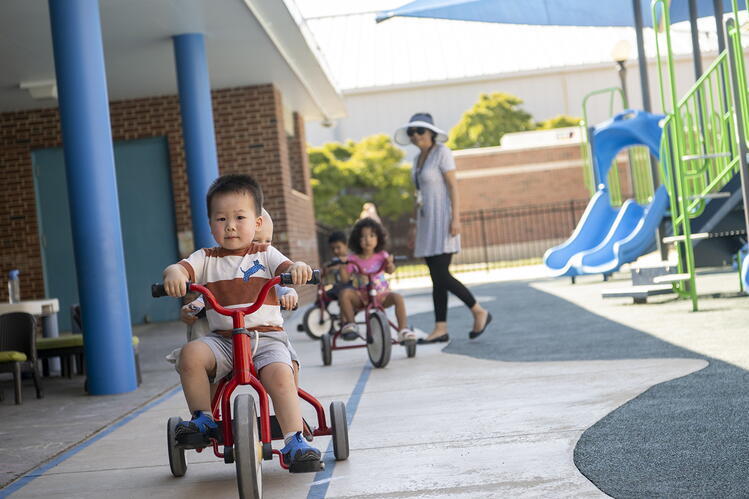Promoting healthy families and communities

At first glance, the Department of Human Development and Family Studies might not seem like an obvious fit within the College of ACES. But its place in the college is both historic and foundational.
HDFS traces its origin back to the School of Domestic Science and Arts, which was established at the University of Illinois Urbana-Champaign in 1872 to provide instruction in “arts of the household” and an opportunity for women to pursue a college education. Later rebranded as the Department of Home Economics, it eventually split into separate disciplines, including food and nutrition (now the Department of Food Science and Human Nutrition) and Child Development and Family Relationships — the precursor to HDFS.
“We’re part of the original vision of the university and the land-grant mission, which opened higher education to women and other marginalized groups. We continue to conduct rigorous scientific research and translate that knowledge into policies and programs that promote human thriving,” said HDFS department head Ramona Oswald.
Today, the department excels in multiple focal areas, from youth development to couple relationships to the impact of discrimination, united by a commitment to address the lived experience of its constituents.
Informing healthy youth development
HDFS research covers the entire human lifespan — from infancy to old age — with a strong emphasis on youth development. Scholars explore how to foster autonomy, identity, interdependence, and civic mindedness in young people. This work builds on the legacy of Professor Emeritus Reed Larson, an internationally renowned leader in positive psychology and youth development.
For example, Kelly Tu’s research on parent-child interactions informs parenting strategies that help kids deal with stressful school and peer challenges. Nancy McElwain uses the innovative LittleBeats technology to study infant sleep patterns and emotional regulation in real-world settings, providing crucial insights into infant development and health outcomes.
Strengthening couple relationships
HDFS also places significant emphasis on couple relationships. Allen Barton leads the Illinois Strong Couples program, which provides no-cost relationship support through Illinois Extension. Participants report reduced conflict, improved co-parenting, and stronger partner support.
“When you strengthen something so central to people’s lives — like marriage and romantic relationships — it benefits other aspects of life as well,” said Barton. “Research shows that strong, stable relationships positively impact adults, children, workplaces, communities, and even the broader economy.”
Jennifer Hardesty and Brian Ogolsky have spearheaded research on a different aspect of relationships — the role of domestic violence in divorce cases. They have developed training programs that are changing the way lawyers and judges view intimate partner violence in divorce proceedings.
Studying the impact of racial discrimination
Shardé Smith is one of several HDFS researchers who studies the impact of racism on couples and parent-child relationships.
“A person’s experiences with racial discrimination are not just their own, but may spill over into the family and affect the mental health and perceived social support of other family members,” she said.
Alaysia Brown, who joined the HDFS faculty in the spring, investigates how systemic racism and discrimination affect the health and well-being of African American individuals, couples, and families. Her work integrates machine learning with traditional social science methods to examine how racial and ethnic discrimination shape relationship dynamics and contribute to racialized health disparities.
Paying attention to lived experiences
“The work we do in HDFS highlights the importance of developmental stages and how they change over time. Kids grow, relationships evolve, and communities change, and what people need to thrive can change over time and situation,” Oswald stated.
“We use science to understand individuals and relationships. Importantly, the scientific methods that we use combine objective measures and observations, with attention to how people perceive their own lives.”
To uplift this work and help support healthy families and communities, visit: hdfs.illinois.edu/give